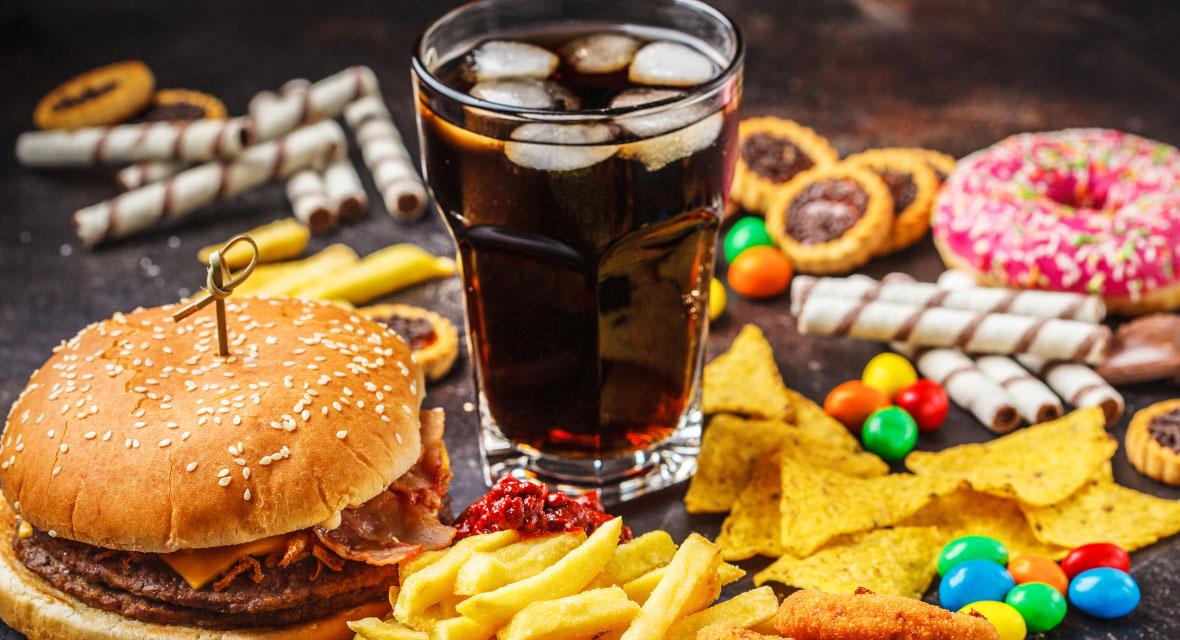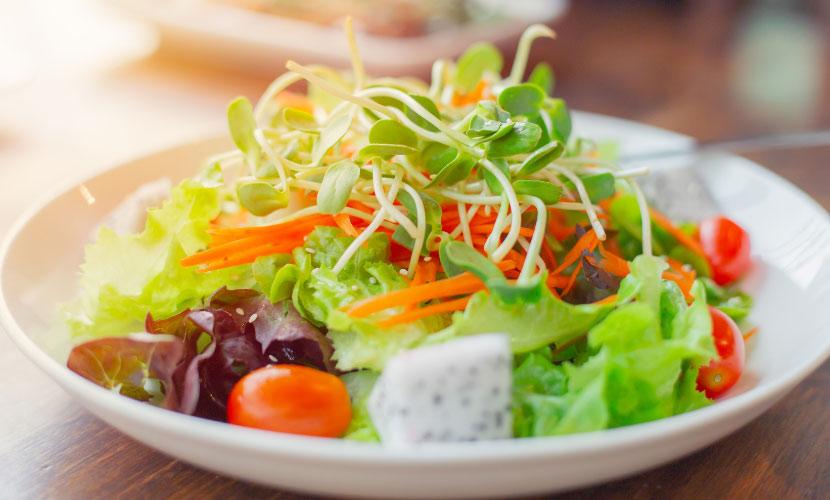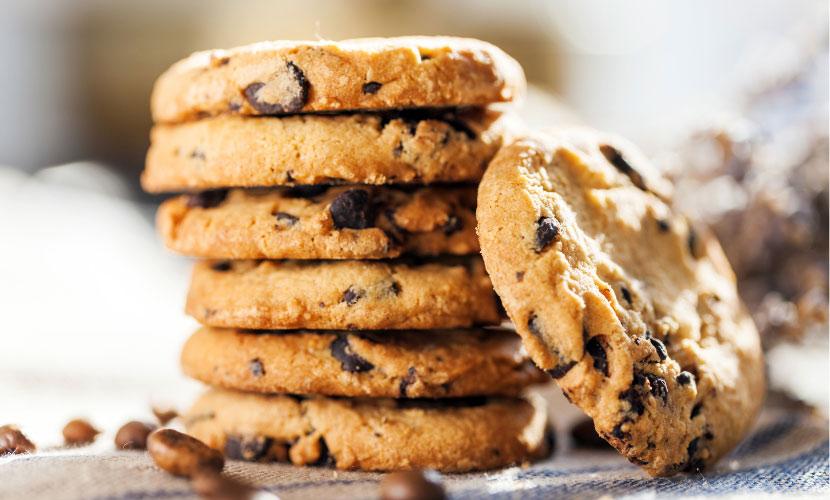🏆 As seen and loved on Shark Tank Dubai 🏆

Low-fat Foods That Are Bad for You
10 low-fat foods that are bad for your health
Components of a balanced diet include different servings of foods that are a source of carbohydrates, proteins, fibre, vitamins, minerals, water, and fats. All these essential compounds are required by the body in different proportions and quantities.
Excess of anyone can alter health negatively and lead to various health problems. Thus, consuming fresh fruits, vegetables, legumes, and other whole foods will make up a healthy balanced diet. We offer Vegetarian Meal Plan in Dubai, and other healthy meal plans like keto meal delivery plans at affordable prices.
Understanding fat foods
Amongst all, fats are the most speculated food compounds. They are considered a reason for health issues like heart disease, cholesterol, obesity, etc., which is not wrong. Excess of anything is bad, and so are fats. But we fail to understand that fats are also one of the most important nutrients which the body needs in an adequate amount.
Fats provide energy to the body for various internal and external activities, it keeps the skin soft and healthy. Fat is needed for the absorption of fat-soluble vitamins, and it also makes a protective layer for the nerve tissues.
Fats help to feel full which helps control the appetite. Therefore, fats should make up at least 30% of the daily calorie intake for balanced health.
Furthermore, eating whole foods is a much better option. Looking for healthy monounsaturated fats found in olive oil, nuts, seeds, avocados, etc., instead of low-fat options will be smart eating. These healthy fats are known to boost the good cholesterol in the blood and reduce the bad ones.
Hence, consuming fat-rich foods in adequate quantities is a must for good health. Our hardworking nutritionists extend to provide a wide range of diet and healthy meal plans on a budget. You can choose whichever plan suits your health and lifestyle goals.
What are low-fat foods
With increasing research and awareness of food and health, low-fat, fat-free or reduced-fat foods have come into existence. These types of food items promise to have relatively low fats in them and hence are supposed to be "healthy".
This category is now widely available in all kinds of food we eat - butter, spreads, bread, syrups, juices, cereals, meats, and whatnot. They claim to be foods low in fats and hence, lure the health-conscious public to a larger extent.
People associate low-fat with healthy and that is a dangerous notion. Not every food labelled as low-fat is healthy. Before discussing deep into what are some unhealthy low-fat foods, let us understand what they are.
Fats are usually derived from animals and hence when the food industry decided on limiting animal fat consumption, it gave birth to low-fat processed foods. Since foods without fats will lack texture, processed food manufacturers started adding plant-derived fats in the form of vegetable oils.
But the plant-derived fats contain trans fats which are known to provoke heart diseases. Thus, low-fat foods are not a healthy choice. If you are worried about your weight and seeking an appropriate diet plan from a certified dietician, our weight loss meal plan in Dubai is the one to follow!
Moreover, fats provide a deliciously distinctive taste to the food which makes a person crave more. Hence low-fat foods rely on additives like sugars and salts for the flavouring. In some cases, flavour enhancers are also added to get the required taste of a drink, juice, or butter. Thus, making such low-fat foods rich in sugar and salt only increases the risk of health issues like high blood pressure, diabetes, weight gain, and cardiovascular diseases.
As more and more companies are shifting to low-fat food, it's important to keep a mindful check on the items while grocery shopping. Checking the nutrition level and calorie count is a must because most of the time the manufacturers print such details in a comparatively smaller size.
Low-fat foods that are bad for health
Low-fat sweetened breakfast cereal
Breakfast cereals have been considered a healthy option for a very long time. Even though the package claims "low-fat, whole grains", these processed foods have a high content of sugars for flavouring purposes.
White sugar, brown sugar, or even corn syrup, all have fructose in them. Higher amounts of fructose consumption lead to ailments like obesity, heart disease, kidney problems, and type-2 diabetes. Thus, checking the nutrient contents of the pack is highly recommended before buying.
Low-fat flavoured coffee drinks
Coffee when custom-made with healthy options and no sugar, is a good beverage for health. It has caffeine, which improves mental and physical activity responses, and the antioxidants found in coffee prevent heart diseases and type-2 diabetes.
Whereas the processed coffee drinks available in the market with low-fat tags prove to be much injurious to health. They contain high doses of sugar which only affects the health negatively. Drinks like cold coffee and mocha have low amounts of coffee and more sugar content. Thus, one should avoid them.
Low-fat flavoured yoghurt
Yoghurt made from whole milk is very healthy and known to improve body composition by reducing body weight.
But the low-fat sweetened options available in the stores are high in sugar and low in Conjugated Linoleic Acid (CLA), a compound in dairy products that helps in fat loss. Hence, flavoured yoghurts are not as nutritious as they claim to be.
Low-fat salad dressing

Traditional salad dressings are added to enrich the flavour of raw veggies. They improve the nutritional value of the salads and the fats in them help the body to absorb the fat-soluble vitamins and antioxidants present in the green leafy and colourful vegetables.
Contrary to traditional dressings, low-fat dressings do not contribute to your health in any way. Moreover, the preservatives, sugars, and salts added to them can become a cause for multiple health issues.
Reduced-fat peanut butter
Peanut butter is one such snack that is extremely healthy and delicious. Peanuts are naturally very nutritious and are known to control appetite, maintain body weight, regulate blood sugar and protect heart health.
Natural peanut butter contains salts and peanuts and is high in monounsaturated fat including oleic acid. Whereas reduced-fat peanut butter is made from sugar and high fructose corn syrup. This makes it an unhealthy snack as compared to its original composition.
Low-fat muffins
Low-fat muffins are low in fibre and high in Glycemic Index (GI). Foods with a high GI increase the blood sugar level, which in turn drives hunger, and contributes to overeating and weight gain.
Thus, low-fat muffins are not always a very healthy baked option.
Low-fat frozen yoghurt
Low-fat frozen yoghurts are considered much healthy as compared to ice-creams. But the sugar content in them is equal to ice-creams, with the portion size being much more than them.
Thus, they are extremely dangerous foods in disguise. Avoid them as much as possible.
Low-fat cookies

Low-fat cookies aren't any healthier than normal cookies. They are made from fibre-less refined flour, taste bad due to the absence of fat, and are generally high in sugar content.
Thus, baking cookies at home with healthy substitutes is a much better idea.
Low-fat cereal bars
Snack bars are mostly advertised as grab-and-go foods, but if you look at their nutritional details, they are generally low in fibre, and protein, and high in sugar and flavourings.
Thus, they give energy to the body at the cost of excessive sugars.
Low-fat sandwich spreads
Butter and mayo are natural sandwich spreads and are much better options as compared to low-fat versions. The low-fat spreads usually contain vegetable oils as fats which are known to have some amounts of unhealthy trans fats.
These trans fats cause inflammation, obesity, and certain heart diseases. Thus, spread like margarine is not a very healthy option.
Bottom Line
Low-fat foods attract the masses heavily, but they are not very healthy options as they are rich in sugars, preservatives, and flavour additives. So, eat naturally and in the right quantity, and you will never feel the need for fat-free food items.
So, now that you know some of the low-fat food items, replace them with natural healthy fat foods. A lot of meal plans (such as athletes, wellness, muscle gain), as well as diet options, are available on our website for your unique choice of ketogenic diet foods, gluten-free & dairy-free diet, or Vegetarian Meal Plan, among others.
Reach out to start your fitness journey with us!
Meal Plans
Delivery Details
Legal Information
© 2020-2026 VMeals. All rights reserved. VMeals™ is a trademark of Flip Side Restaurant and Cafe L.L.C
We accept
